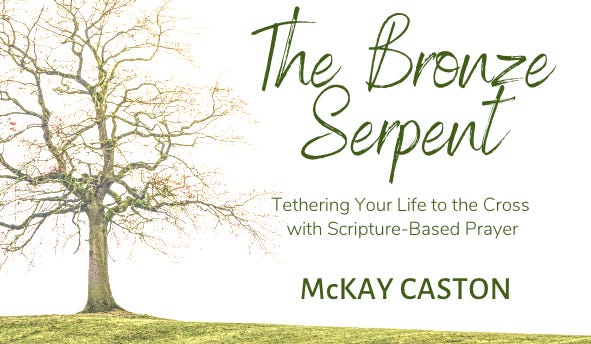“Your kingdom come.”
— Matthew 9:10
The kingdom of God was a favorite theme of Jesus.
The establishment of the kingdom also was the preeminent concern of the disciples just before Jesus ascended into heaven in Acts 1.
But what were they looking for? The physical reign of God on earth?
A revived theocratic nation-state like Israel had been under the Old Covenant?
Although the word kingdom (βασιλεία, basileíā) is used 162 times in the New Testament alone, concepts of the Kingdom of God have been various and sometimes conflicting.
In light of the many views, what does it mean to pray, "Your Kingdom come?"
While he may intend more, I'm pretty sure Jesus means no less than for us to pray…
"May the implications of your kingdom to be realized in my life as I gladly submit to your sovereign reign, perfect wisdom, and gospel kindness."
In other words, since the kingdom is not limited to a geo-political entity but boasts a domain that extends to and over every molecule in the universe, it would serve me well to think globally but act locally.
Or even better, to embrace the implications of the kingdom personally.
After all, Jesus compared the kingdom of God to a mustard seed that, from an initial observation, is small and insignificant.
However, over time, the seed germinates, sprouts, and grows into an unexpectedly large tree — especially compared to the size of the seed.
You see, if the seed of the kingdom can be planted into the soil of my life — if the implications of the kingdom are realized personally — the potential for influence is enormous as the kingdom grows in my life the same way a powerful hurricane in the Atlantic begins with a breeze off the west African coast.
The point is that the invisible kingdom usually is not made visible with a huge splash but with a small, sometimes almost unrecognizable ripple.
Imagine the world as a lake into which small pebbles are tossed and you get the picture.
Whether a mustard seed, the breeze that launches a hurricane, or the ripple effect of a pebble tossed into a pond, the transformative power of the kingdom is love.
In the last verses of the previous chapter, Jesus prepped his disciples for kingdom living. Here, we see what the kingdom looks like on earth.
"43 “You have heard that it was said, ‘Love your neighbor and hate your enemy.’ 44 But I tell you, love your enemies and pray for those who persecute you, 45 that you may be children of your Father in heaven. He causes his sun to rise on the evil and the good and sends rain on the righteous and the unrighteous. 46 If you love those who love you, what reward will you get? Are not even the tax collectors doing that? 47 And if you greet only your own people, what are you doing more than others? Do not even pagans do that? 48 Be perfect, therefore, as your heavenly Father is perfect.
The kingdom comes when sons and daughters of God reflect the love, mercy, and grace of their Father to the world.
As a side note, the perfection of which the text speaks is not primarily about keeping religious rules. The kingdom is not primarily an ethical code or moral system. It's more about reflecting the ways of the King—the King who loves perfectly.
Even unto death.
Which is clearly displayed in the King’s cross.
When the world begins to feel the compassion of God’s sons and daughters like sinners felt the kindness of Jesus, the invisible kingdom of God will become increasingly visible because the disciples of Jesus will be functioning like the nail-scarred body of Christ—as if he were still on the earth.
One day he will return to usher in the fullness of his kingdom.
Until then, the implications of his reign are manifested by his body (the church) on earth through his disciples.
Through folks like you and me, who see the kingdom of God grow as we regift the kindness we’ve received from God in Jesus.
Discussion Questions
What images does the idea of a kingdom bring to mind?
How does the Kingdom of God differ from earthly kingdoms, and what implications does this have for our understanding of power and authority?
How does reflecting the love, mercy, grace, and undeserved kindness of our heavenly Father make the Kingdom of God more visible in the world, and what are some ways we can do this?
Where was God’s undeserved kindness most clearly demonstrated?
In what ways can we recognize the "small ripples" of the Kingdom of God in our lives and the world around us?
How can the image of the mustard seed as a symbol of the Kingdom of God encourage us in our own growth as disciples of Jesus?
A Prayer
Dear Heavenly Father,
We come before you with grateful hearts that we’ve been given eyes to see the kingdom. We thank you for the gift of your Son, our King, who showed us what it means to love and serve others selflessly and sacrificially. May we reflect your love, mercy, and grace to everyone we encounter, even our enemies, as the ripples of your Kingdom spread throughout the world, bringing hope and healing as people encounter the message of your grace in Jesus.
In Jesus' name, we pray. Amen.
The next collections in the hopper include Theology 101 and a complete Bible Overview.
✅ Of course, the best way to get a taste of how Read-Aloud Theology can help your family is by taking a free 7-day test drive.
🔓 This will unlock ALL the lessons and bonus resources. And you’ll receive new lessons every week.
🛑 You may easily cancel at any time.
🌟 When you subscribe, you’ll receive a welcome video that explains how to use the site and a link to two free, bonus resources (see below). Or just go to the Help Desk.
Subscribed
My deep desire is for these lessons to help your family come alive to the wonder, beauty, and transforming power of God’s grace in the crucified, risen, and reigning Jesus. 🙏
Yours, by grace alone,
McKay








